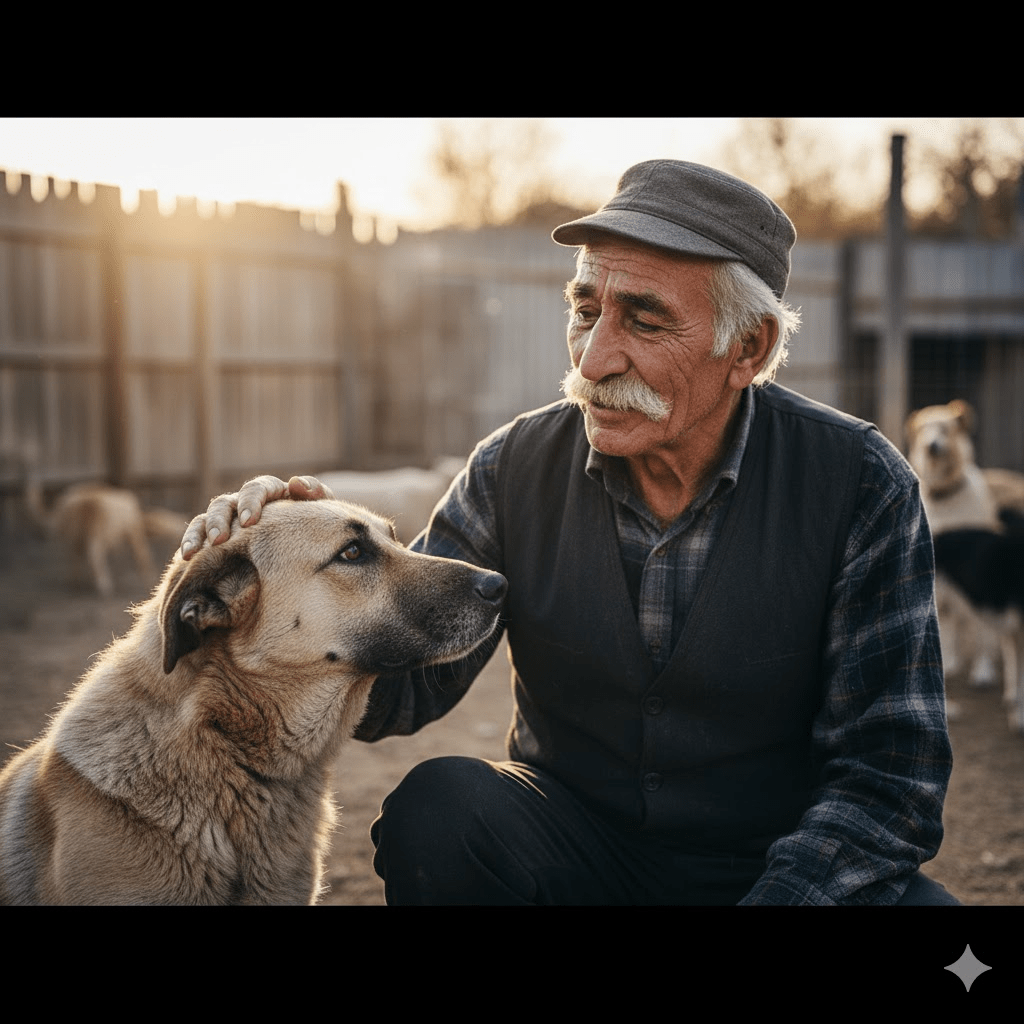The sun beat down relentlessly on the sprawling, desolate landfill, a landscape of human refuse stretching as far as the eye could see. Amidst the discarded dreams and forgotten remnants of civilization, a silent tragedy was unfolding. Kratos, an 8-year-old Kangal Shepherd, once a magnificent guardian breed renowned for its loyalty and strength, lay emaciated and defeated. His once proud frame was now skeletal, his fur matted with grime, and his eyes, though still holding a flicker of life, reflected the profound despair of abandonment.
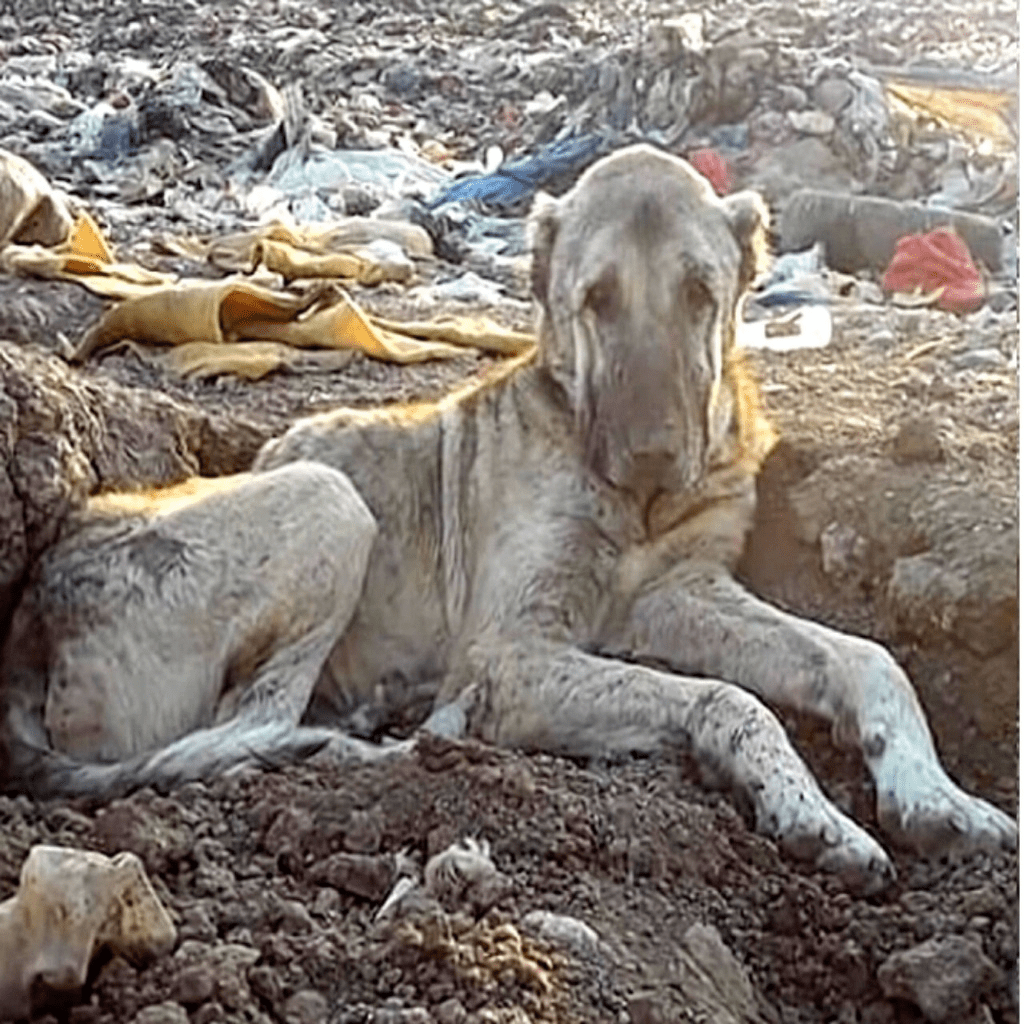
He was a ghost in a wasteland, one of countless forgotten souls in Turkey, where the plight of stray and abandoned animals is a harsh reality. Every breath was a struggle, every movement a monumental effort, as he clung to existence amidst the stench and the flies, a testament to an unimaginable will to survive against all odds. His story, however, was about to take an unforeseen turn, a dramatic pivot from the brink of oblivion towards a future he could only dream of.
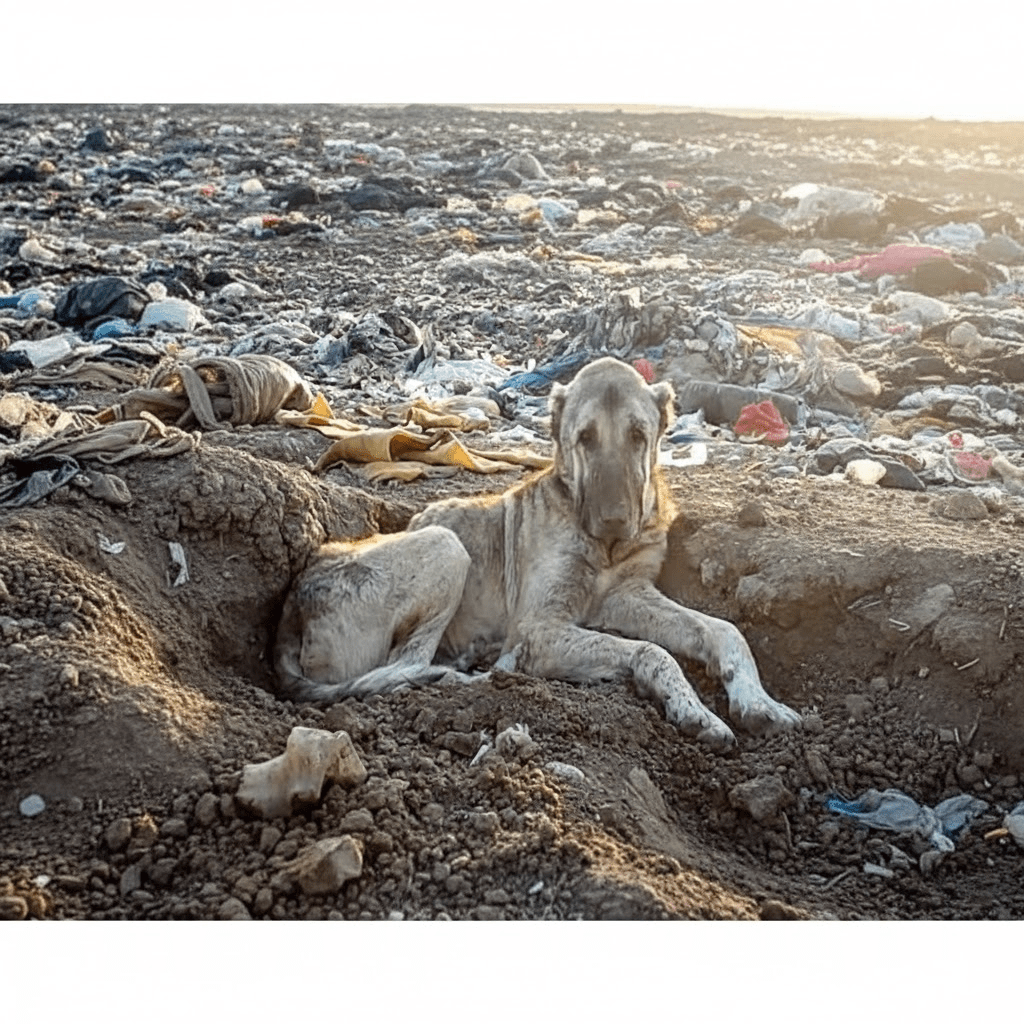
The first twist in Kratos’s tale came not from a planned rescue mission, but from a chance encounter. A local waste management employee, on a routine inspection, spotted the large, forlorn dog. Initially, he dismissed it as another lost soul, but something about Kratos’s still gaze, the sheer resignation in his posture, tugged at his conscience. He returned later that day, not with equipment, but with a small bag of food and water, a gesture that, while seemingly minor, was a lifeline Kratos desperately needed. It was an unspoken promise in a world that had offered him only neglect.
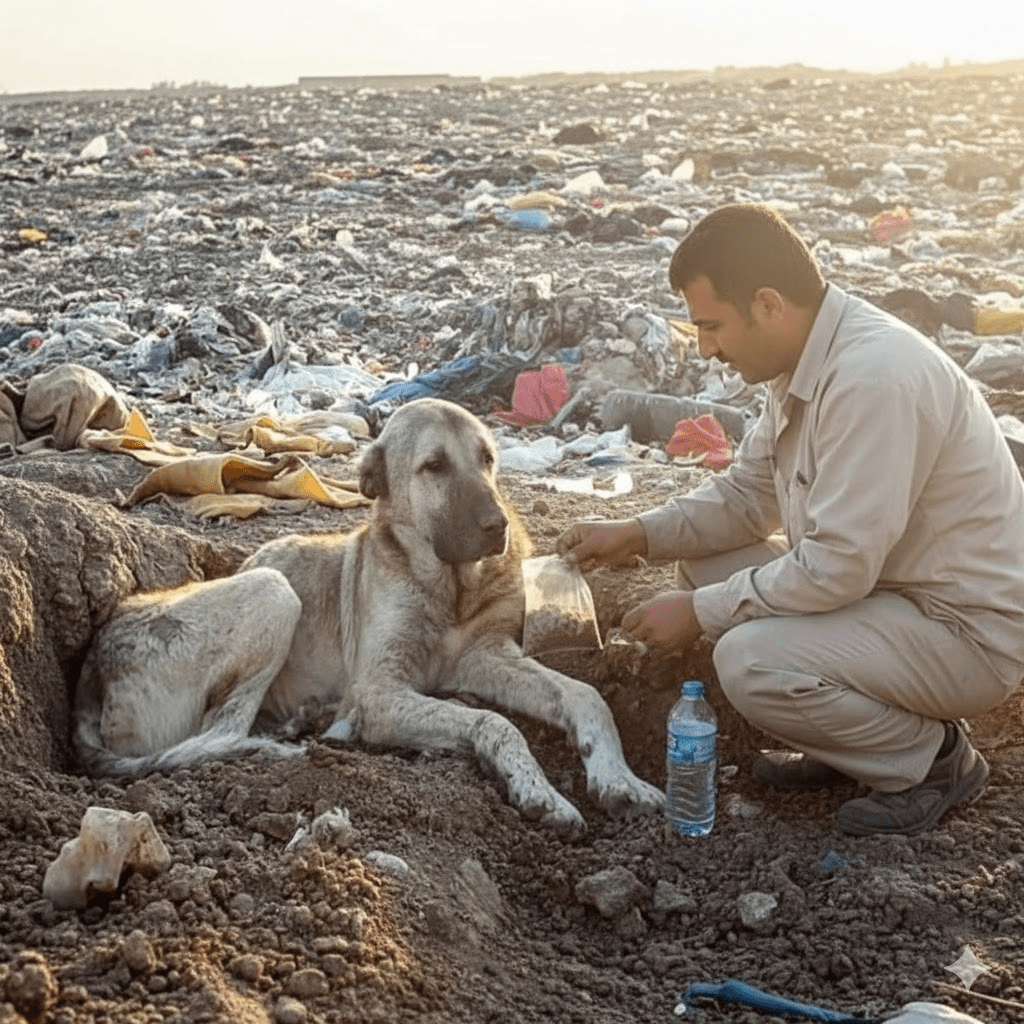
News of the emaciated Kangal slowly spread through the small, local community. It wasn’t long before a small, independent animal welfare group, “Hope for Paws Turkey,” heard the whispers. Led by Aylin, a veterinarian with a heart as vast as the Anatolian plains, they decided to investigate. What they found was more heartbreaking than anticipated. Kratos was not just starving; he was gravely ill, his immune system compromised, and his spirit almost broken. The rescue operation itself was fraught with challenges; Kratos, despite his weakness, still possessed the inherent wariness of a guard dog, making him difficult to approach.
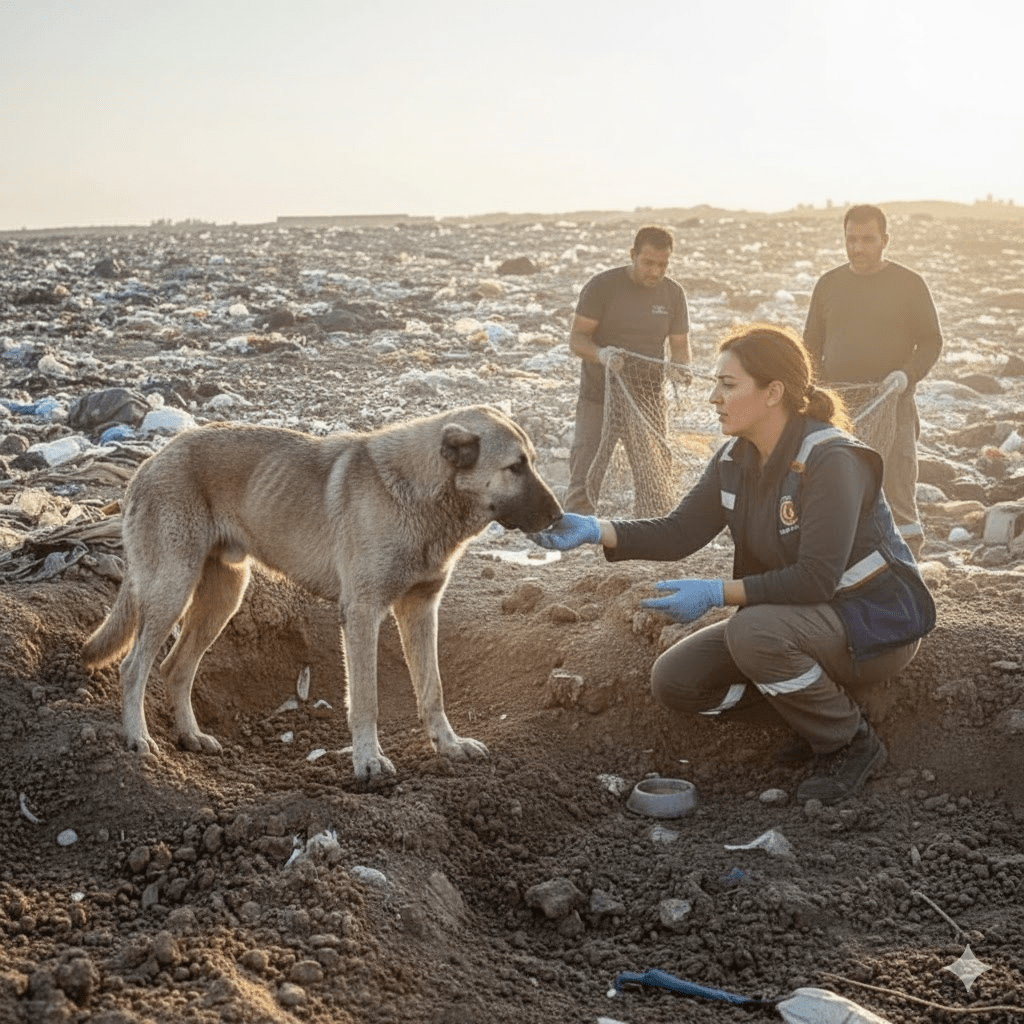
The initial days at the shelter were critical. Kratos was diagnosed with severe malnutrition, dehydration, and a host of parasitic infections. His recovery was slow and arduous, a constant battle between his damaged body and the will to live that still flickered within him. He was a shadow of his former self, his large frame looking almost fragile in the sterile environment of the clinic. The team at Hope for Paws worked tirelessly, administering fluids, medication, and small, frequent meals, their patience unwavering as Kratos slowly began to trust again.
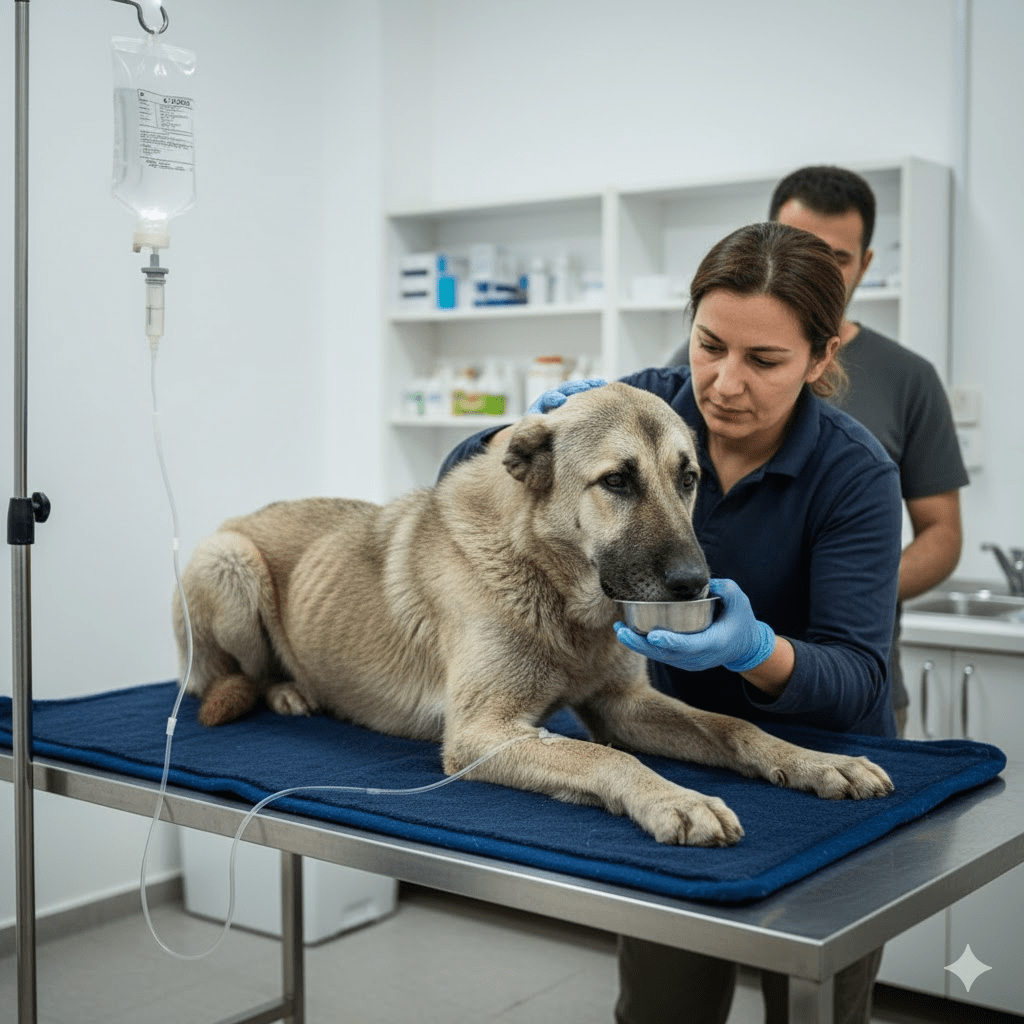
One unexpected twist in Kratos’s journey came in the form of an elderly shepherd, Mehmet, who lived a solitary life tending his flock in a nearby village. He heard about the rescued Kangal and, out of curiosity, visited the shelter. As he watched Kratos, something stirred within him. Mehmet had once owned a magnificent Kangal that had been his loyal companion for years. He saw a kindred spirit in Kratos, a reflection of his own resilience and enduring spirit.
